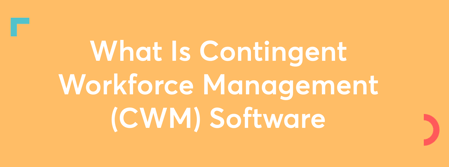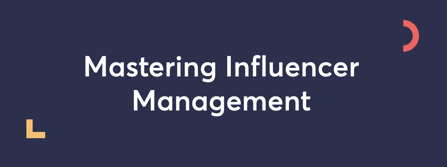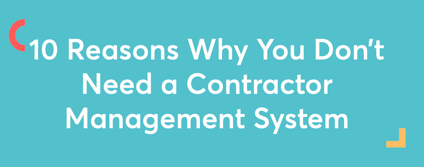- 2 Mar 2019
- 4 mins read
- Posted in
Traditional HR departments are used to dealing with employees. The whole structure, strategy, processes and procedures are set up for this. In many cases, employees come into the office, typically 9-5pm, five days a week. There are benefit entitlements, appraisals, disciplinary and all manner of people issues that HR teams have to juggle – usually supported by HR software.
Currently caught up with day-to-day employee and business activity, HR teams can be forgiven for not being able to devote much time to thinking about how they – and their department – approach working with freelancers on behalf of the organisation.
In fact, it’s often line managers (or others) that are hiring freelancers. As a result, information can become scattered around the business. This means that HR often has little to no visibility of the number of people that are working on behalf of their company and in what capacity. Given they are responsible for ‘the people’, it leaves the department in a vulnerable position.
For this reason, HR departments need to accept that freelancers work differently and likewise, that the systems required to manage the engagement process are also different. This need for acceptance is becoming more pressing considering that more organisations are using outsourced staff.
Freelancers are reshaping the way companies hire talent
Greater competition within a global marketplace means that businesses need to be more agile – and this goes for their workforce too. Executives within the organisation are increasingly tapping into the freelancer economy, with a shift to using more outsourced talent and fewer employees. According to Mercer's recent 'Global Talent Trends 2019' study, which received input from over 800 c-suite executives and 1,600 HR leaders, “79% of executives expect that contingent and freelance workers will substantially replace full-time employees in the coming years.” HR teams will need to adjust to this and understand the outsourcing process: how freelancers work and how that fits within the wider business.
Part of this shift is the fact that a job for life is no longer the norm. As pointed out by the EPSC’s ‘The Future of Work’ research, “Long-term corporate jobs guaranteeing full-time, life-long job security and benefits only became dominant in the ‘trentes glorieuses’ after 1945.” This developed due to more complex industrialisation and the eventual exchange of loyalty for better employment conditions and privileges.
But now, more and more people are looking to have portfolio careers, that provide the flexibility to choose the organisations they work with and the projects that they work on. As a result, employee tenure is shrinking and loyalties are moving away from the organisation and towards the team, manager or project.
Millennials are now the largest generation in the workforce. This is confirmed by research undertaken by ManpowerGroup, which states that in little over a years time Millennials and those born in the subsequent 'Generation Z' era, will together account for more than half of the global workforce population.
The current HR system isn’t fit for purpose
From interview to onboarding and managing the whole employee lifecycle, the traditional HR system is mature and meets internal staffing needs well. But as alluded to earlier, it isn’t a good fit when it comes to managing freelancers. Unlike employees, freelancers often rarely work from within the four walls of a physical office or a specific location. Most freelancers you’ll never meet face-to-face.
This calls for a different type of software. There are a number of solutions out there such as a vendor management system (VMS), managed service provider (MSP), recruitment process outsourcing (RPO) or applicant tracking software (ATS). These all work well in certain circumstances, but are not the best fit when dealing with freelancers. Instead a Freelancer Management System (FMS) allows you to efficiently manage hundreds or even thousands of potentially globally dispersed workers. It provides the mechanism to onboard, store important documents, manage projects, invoice and pay.
There are many other reasons why it’s so important. Businesses often have projects that require a fast response. There’s no time for a long, drawn-out interview process. Line managers will need to search and filter quickly to narrow down their choice of freelancers, reach out to them and then make their choice, sometimes within a few hours. That’s the price of an agile business.
Companies need to attract the best freelancers
HR teams work hard to attract the best employees. But with the shift towards using freelancers, there will also be a need to attract the best individuals to work with the organisation as well – particularly given that the number of freelancers working with a company will grow in the coming years.
Given early promotions, healthy pension packages and company outings are not going to be what attracts freelancers to your organisation, companies need to understand what makes freelancers happy if they want a shot at attracting the best. It’s important that HR departments plan for this now and engage with their colleagues to ensure that the business has the right mechanisms in place to both attract and ultimately manage their fluid workforce.
Colleagues will turn to their HR department for advice
It’s important to emphasise that freelancers are not employees. They, therefore, need to be managed separately – particularly as it will be your colleagues on the whole who will be dealing with the day-to-day management of your elastic workforce.
However, the executive team and department leads may turn to their HR colleagues for advice more and more. This could be anything from discussing contractual issues and obligations, alongside legal advisors, to what is or isn’t allowed in terms of working practice to avoid issues with the upcoming IR35. These regulations are already in place for the public sector and will be implemented for the private sector for mid-sized and larger companies from April 2020.
Freelancers impact your HR strategy
The bottom line is that freelancers are going to become a greater part of the talent base for most companies in the coming years. That means it would be prudent of HR departments to work with colleagues to get the right systems in place now. Without them, it will be impossible to have a holistic view of whether the HR strategy is aligned with the business’ goals. How can you, if you don’t take account of this growing part of your workforce?
Part of the global talent team, freelancers are often the hidden factor in many organisations being managed on spreadsheets – or worse, paper. This lack of visibility is not just inefficient but it could open the business up to all manner of issues such as financial spend and compliance problems including GDPR and IR35.
By understanding the talent requirements of the business as a whole, HR teams will be better placed to formulate the organisation’s ‘people’ strategy so that the right people are working on the right projects at exactly the right time. Ignoring the freelancer workforce is not an option. It can’t be shoehorned into existing systems. This means that HR teams will need to change the way they view talent – and in particular outsourced staff - if they are to play a leading role in shaping the organisation’s ‘people’ strategy moving forward.

Stefani Thrasyvoulou
Speak to us to find out how we can help you pay your contractors more efficiently
Related articles

2024 Engineering Recap
See how we enhanced features and added automation in 2024 to improve TalentDesk user experience. Here's a full recap and a look ahead to 2025.

What Is Contingent Workforce Management Software?
Discover how contingent workforce management software enhances cost savings & access to talent. Learn about essential tools, compliance & best practices.

How AI is Transforming eLearning
See how AI is transforming eLearning with personalized experiences, content, and predictive analytics, enhancing education for students and teachers alike.
What is a Vendor Management System (VMS)? A Complete Guide
What is a Vendor Management System (VMS)? A Complete Guide
Discover what a Vendor Management System (VMS) is and why it’s essential for managing your workforce. Streamline vendor management with ease.
Best Contractor Management Software for 2025
Best Contractor Management Software for 2025
Discover the best contractor management software to streamline workflows, ensure compliance, and simplify payments. Manage global contractors with ease.

What is a Contractor Of Record (COR)?
Discover the role of a Contractor of Record (COR) – Learn how a COR streamlines contractor compliance and safeguards your business legally.

31 Game-Changing AI Marketing Tools for 2025
Discover 31 game-changing AI marketing tools – from automation to personalization, these tools will revolutionize your campaigns and boost efficiency.

Why Businesses Should Invest in AI or Risk Getting Left Behind
Discover why investing in AI is essential. Explore the benefits of automation, decision-making, and staying competitive in an AI-driven future.

Mastering Influencer Management: Strategies for Effective Collaboration
Our guide to influencer management, exploring strategies, tools, and tips to create successful influencer relationships and enhance your marketing impact.

10 Reasons Why You Don’t Need a Contractor Management System
Discover 10 hilarious reasons why you absolutely don’t need a contractor management system - because who needs efficiency, happy freelancers, or sleep?

2024 Engineering Recap
See how we enhanced features and added automation in 2024 to improve TalentDesk user experience. Here's a full recap and a look ahead to 2025.

What Is Contingent Workforce Management Software?
Discover how contingent workforce management software enhances cost savings & access to talent. Learn about essential tools, compliance & best practices.

How AI is Transforming eLearning
See how AI is transforming eLearning with personalized experiences, content, and predictive analytics, enhancing education for students and teachers alike.
What is a Vendor Management System (VMS)? A Complete Guide
What is a Vendor Management System (VMS)? A Complete Guide
Discover what a Vendor Management System (VMS) is and why it’s essential for managing your workforce. Streamline vendor management with ease.
Best Contractor Management Software for 2025
Best Contractor Management Software for 2025
Discover the best contractor management software to streamline workflows, ensure compliance, and simplify payments. Manage global contractors with ease.

What is a Contractor Of Record (COR)?
Discover the role of a Contractor of Record (COR) – Learn how a COR streamlines contractor compliance and safeguards your business legally.

31 Game-Changing AI Marketing Tools for 2025
Discover 31 game-changing AI marketing tools – from automation to personalization, these tools will revolutionize your campaigns and boost efficiency.

Why Businesses Should Invest in AI or Risk Getting Left Behind
Discover why investing in AI is essential. Explore the benefits of automation, decision-making, and staying competitive in an AI-driven future.

Mastering Influencer Management: Strategies for Effective Collaboration
Our guide to influencer management, exploring strategies, tools, and tips to create successful influencer relationships and enhance your marketing impact.

10 Reasons Why You Don’t Need a Contractor Management System
Discover 10 hilarious reasons why you absolutely don’t need a contractor management system - because who needs efficiency, happy freelancers, or sleep?

2024 Engineering Recap
See how we enhanced features and added automation in 2024 to improve TalentDesk user experience. Here's a full recap and a look ahead to 2025.

What Is Contingent Workforce Management Software?
Discover how contingent workforce management software enhances cost savings & access to talent. Learn about essential tools, compliance & best practices.

How AI is Transforming eLearning
See how AI is transforming eLearning with personalized experiences, content, and predictive analytics, enhancing education for students and teachers alike.